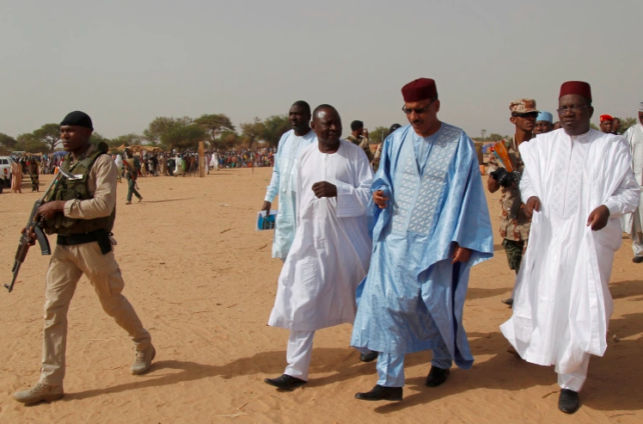Ruling party candidate Mohamed Bazoum to face former President Mahamane Ousmane in runoff, according to provisional results.
Niger’s ruling party candidate Mohamed Bazoum will face former President Mahamane Ousmane in a presidential election runoff in February, according to provisional results announced by the electoral commission.
Bazoum, 60, led the first round with 39.33 percent of the vote, falling short of the 50 percent plus one needed to win the first round.
Ousmane received 17 percent of the votes cast, the commission said on Saturday.
Former prime ministers Seini Oumarou and Albade Abouba respectively came third and fourth with 8.95 percent and 7.07 percent of the ballots.
The second round is expected to be held on February 21 after the results of the first round have been validated by the constitutional court, which will hear any appeals.
Bazoum, who has been both interior and foreign minister, campaigned on promises of improved security and education and had hoped to clinch victory in the first round.
Bazoum’s Nigerien Party for Democracy and Socialism (PNDS) is also leading in the legislative vote held at the same time with 80 of the 165 seats and five diaspora seats remaining to be decided.
Niger’s President Mahamadou Issoufou is stepping down after two five-year terms, which is expected to lead to the West African country’s first transfer of power between two democratically elected presidents.
Almost 7.5 million people cast their votes on Sunday to choose a successor to Issoufou, who in a New Year radio address hailed the election as “a new, successful page in our country’s democratic history”.
Insecurity overshadowed the campaigning, with Niger battered by armed groups on its southwestern border with Mali as well as its southeastern frontier with Nigeria.
Five years of violence in the former French colony have cost hundreds of lives with many more displaced. Earlier this month, 27 people died in an attack claimed by Boko Haram.
But security is not the only concern for the people in Niger, a country of 23 million people.
The country’s economy has been hit hard by the coronavirus pandemic with a fall in the price of its top export uranium.
It has also suffered due to the closure of the border with Nigeria, a key gateway for the import of essential goods.
Latest Stories
-
No business as usual – Mahama warns appointees
26 seconds -
Mr P.O.P: Message from the Morning Man by Kojo Yankson
2 minutes -
True peace stems from justice, not the lack of conflict – Duncan-Williams
3 minutes -
One dead, student rider injured in a crash at Assin Andoe
4 minutes -
Have a long term plan and financial solution for Ghana’s energy sector to permanently get rid of “dumsor”.
9 minutes -
Ghana to commission first NuScale small modular reactor simulator training centre in Africa
11 minutes -
FirstBank celebrates year-end thanksgiving service at Victory Bible Church
26 minutes -
FirstBank’s 2024 Graduate Trainees give back to the community: A day of learning and sharing at Mount Zion Presby Model Primary School
30 minutes -
Fire destroys hundreds of shops in Techiman Central Market, traders left in despair
42 minutes -
Apple board pushes against diversity rollback call
46 minutes -
‘Merit and loyalty go hand-in-hand,’ says Prof Aryee on Mahama’s appointments
58 minutes -
Statue of former President Akufo-Addo in Sekondi destroyed
60 minutes -
NDC promised to decouple AG and Minister of Justice roles – Prof Atsu Aryee reminds party
2 hours -
Wake up and speak up – Former GES boss calls on headteachers to lead boldly
2 hours -
Taliban ‘do not see women as human’, says Malala
2 hours

